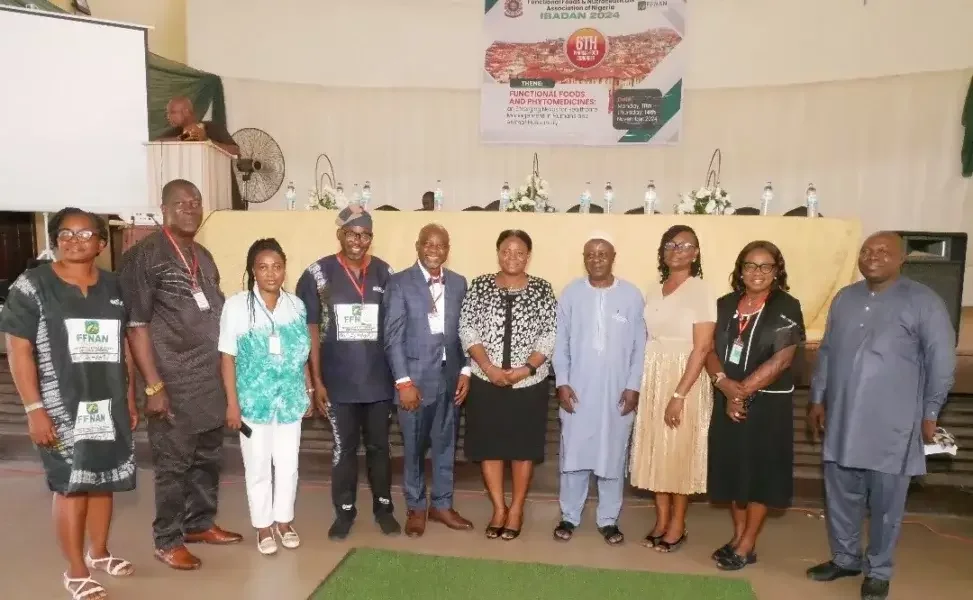As a way of promoting quality health and boost life expectancy among Nigerians, researchers in food science, agriculture, herbal medicine and other related-fields have been challenged to focus more on unraveling the many beneficial properties of plants to man and animals.
This was the consensus at the sixth Pharma-Food Congress of Functional Food and Nutraceuticals Association of Nigeria (FFNAN), held at the Assembly Hall of the Polytechnic, Ibadan from November 11 to 14, 2024.
Themed “Functional foods and phytomedicines: An emerging nexus for healthcare management in humans and animal husbandry”, the conference sought to stimulate research interest among budding scholars in agriculture, food science and other related fields. It emphasized the urgent need for exploration and advocacy for functional foods and phytomedicines as a significant approach to healthcare management in both humans and animal husbandry
While delivering the keynote address, Prof. Lateef Sanni, Executive Director of the Nigerian Stored Products Research Institute, challenged Nigerian scientists to be innovative in exploring functional foods and phytomedicines which, according to him, are at the forefront of natural health innovation with potential benefits for both humans and animals.
According to him, despite the richness of biodiversity, Nigeria has been unable to tap from the reservoir of its natural resources to promote health and wellness of its citizens. This, he said, is largely due to the failure of relevant stakeholders to take appropriate actions in embracing the benefit offered by nature.
Prof. Sanni, who is also the president of International Society for Tropical Root Crops, highlighted different ways through which functional foods and phytomedicines can be used to improve human and animal health.
Similarly, while delivering her paper titled “Role of functional foods and phytomedicines in human and animal health”, Prof. Charity Aremu, former Vice Chancellor, Landmark University, Omu-Aran, Kwara State, noted that functional foods offer great natural health benefits, calling for deliberate attention to its cultivation and promotion.
She listed some of the active components of functional foods that are beneficial to human and animal health, including antioxidant properties, anti-inflammatory properties, immune system support, anti-parasitic properties, and antimicrobial effects among others.
The convener of the conference, Prof. Ganiyu Oboh, encouraged the upcoming scholars to create a niche for themselves in the emerging field of functional foods and phytomedicine. He advised them to seek mentorship from established scholars, especially those in Nigerian universities, to assist them navigate the terrain more effectively.
Prof. Oboh also charged the scholars in attendance to move science beyond paper presentations by taking actions to make their findings useful to humanity, tasking them to look for ways to encourage members of the public to make foods that control all manners of ailment.
In her welcome address, Dr. Abosede Fawole, the conference’s local organizing chair, noted that the conference was unique in many respects.
According to her, apart from being the first that the association would hold in a polytechnic, the event also marked the first time the Polytechnic, Ibadan was hosting a conference of a national association of scholars and academic professionals of this type.
The event, which witnessed the presentation of several academic papers and round-table discussions, was attended by many distinguished scholars, including the acting rector of the Polytechnic, Ibadan, Dr. Taiwo Lasisi, who was represented by the deputy rector, Mrs. Olaide Salawu, and Dr. Bolanle Oseni, Dean of the Faculty of Science. Other scholars who actively participated in the conference are Profs. Isiaka Amoo, Olufunmilayo Omoba, Ebenezer Farombi, and Oluwatoyin Odeku.



